World Championships sprints: 5 of the best
From Basso in 1972 to Cavendish in 2011
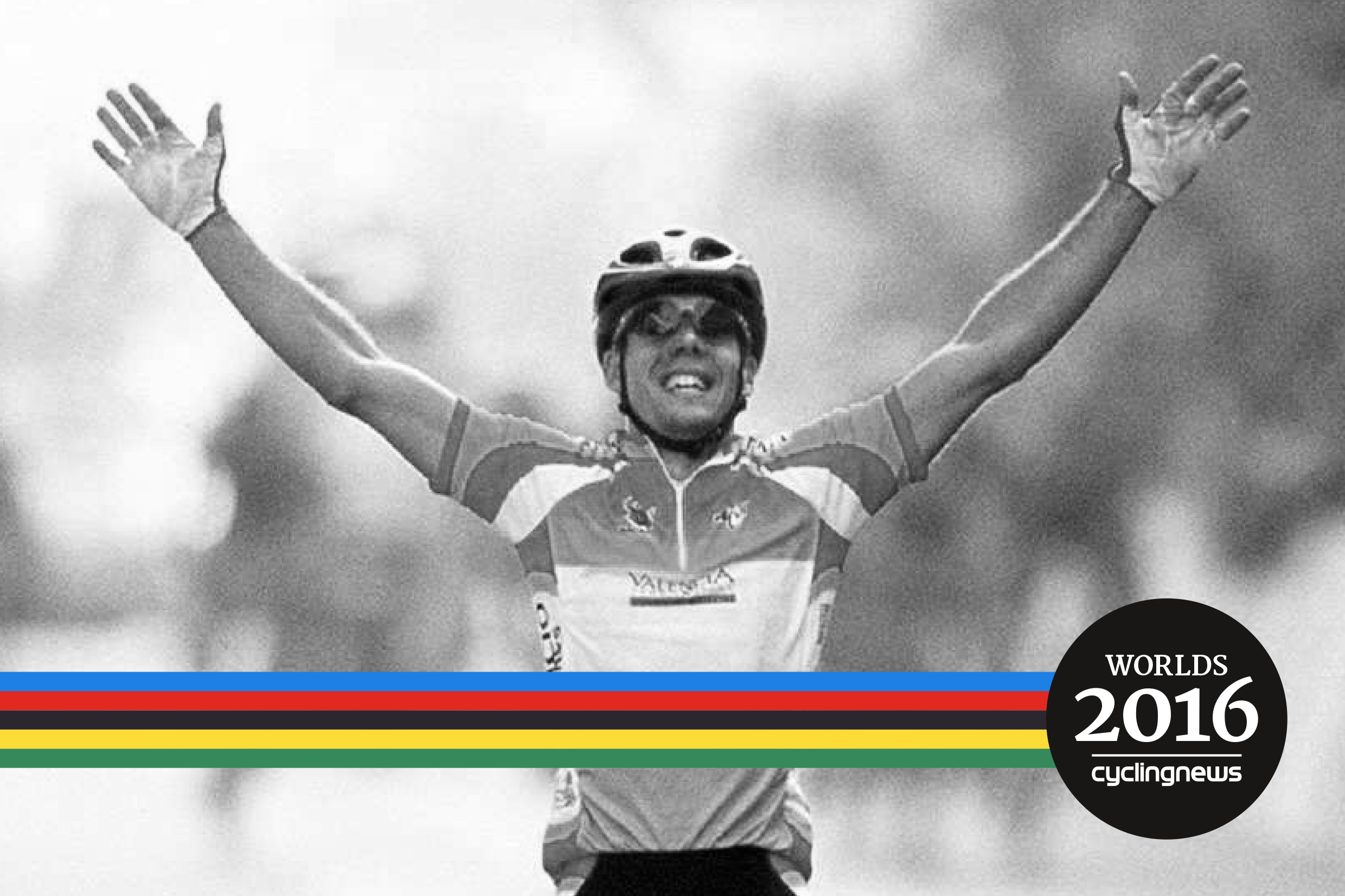
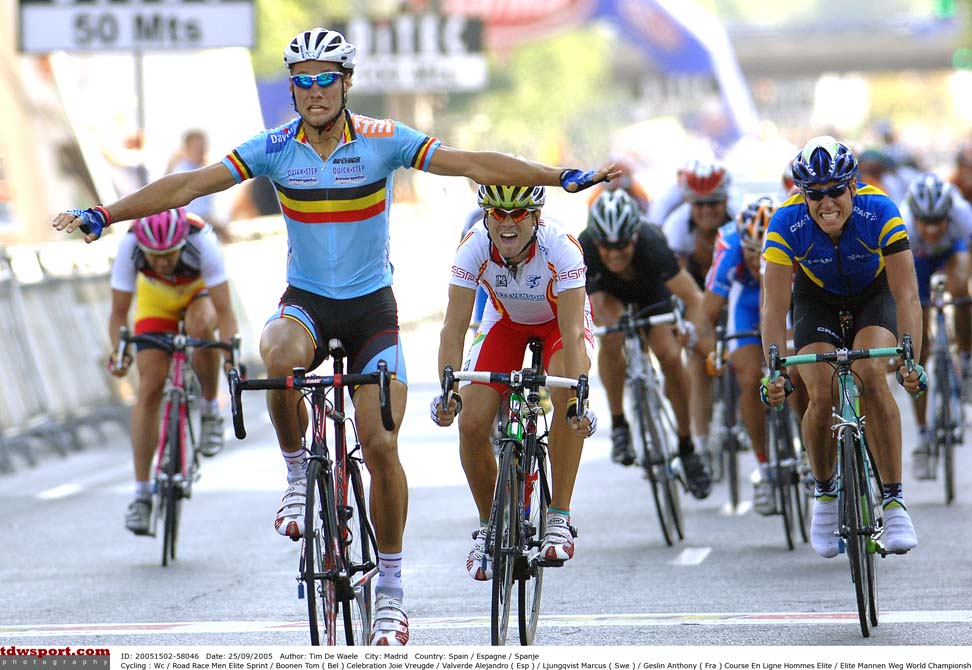
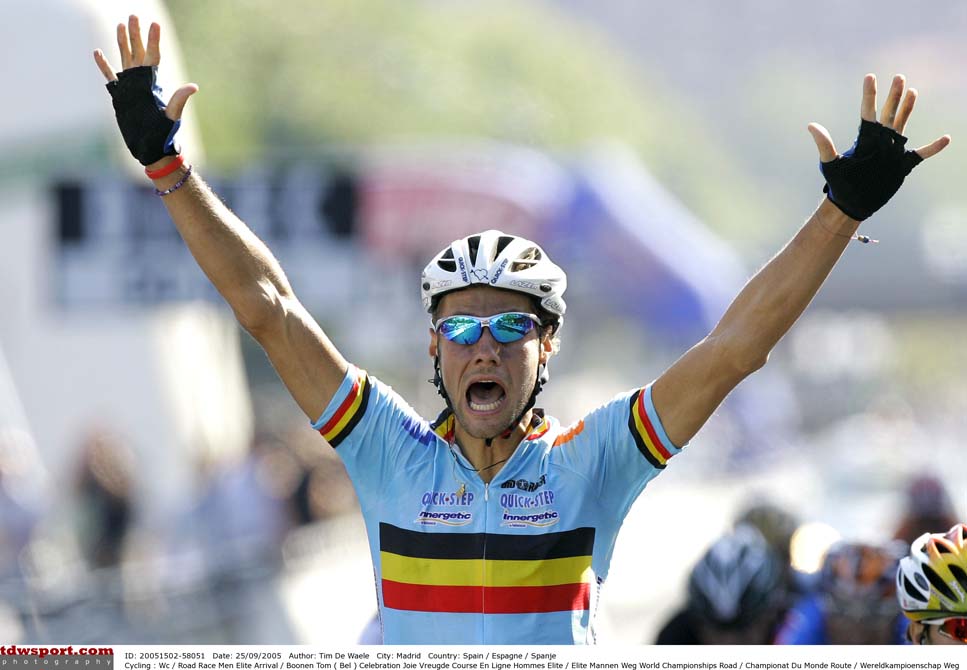
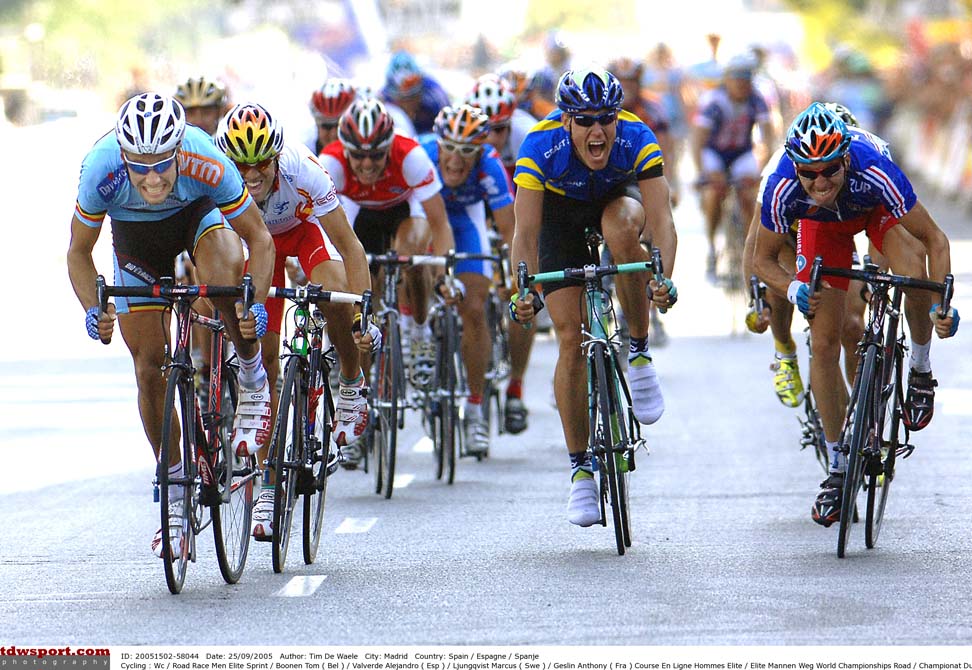
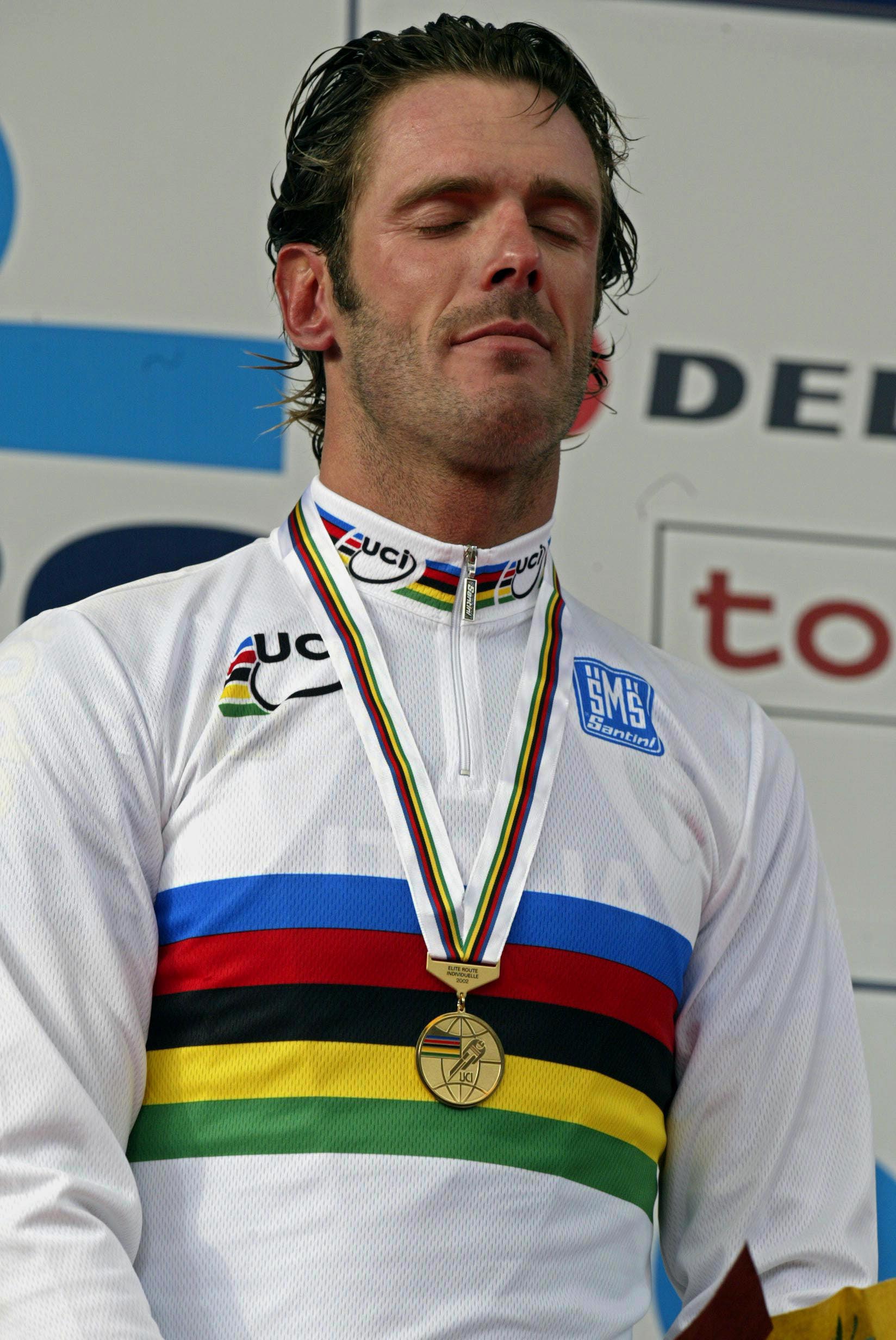
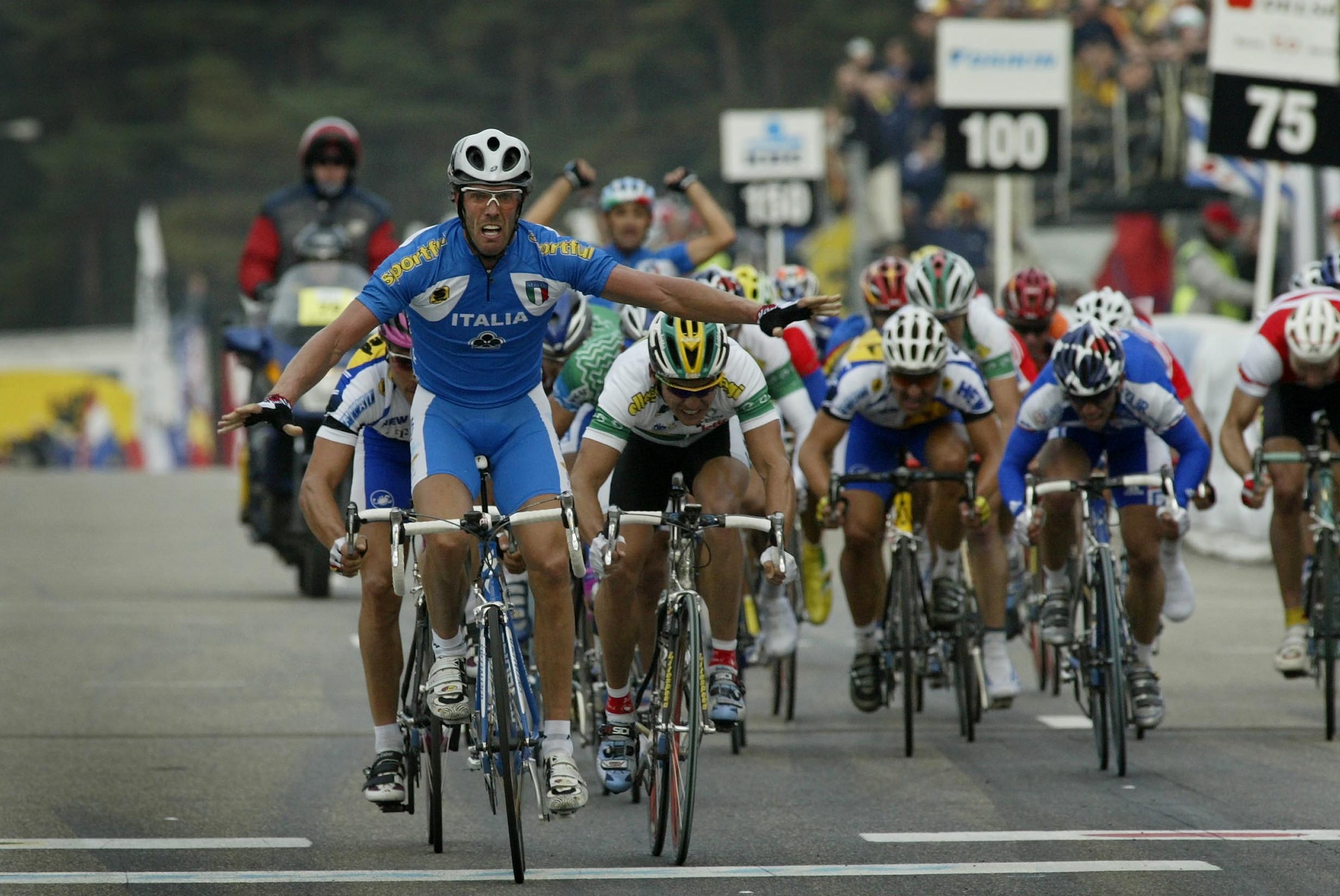
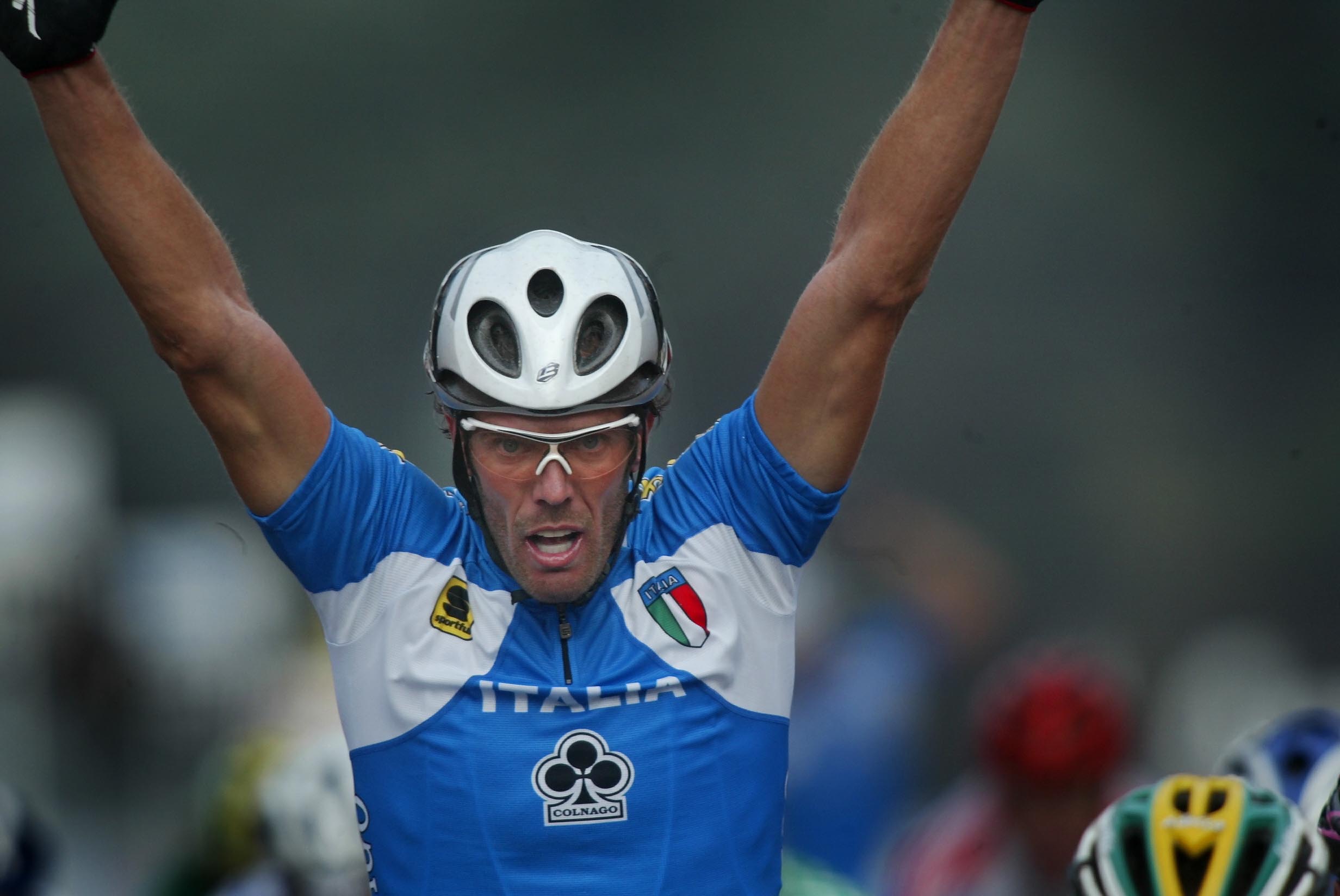
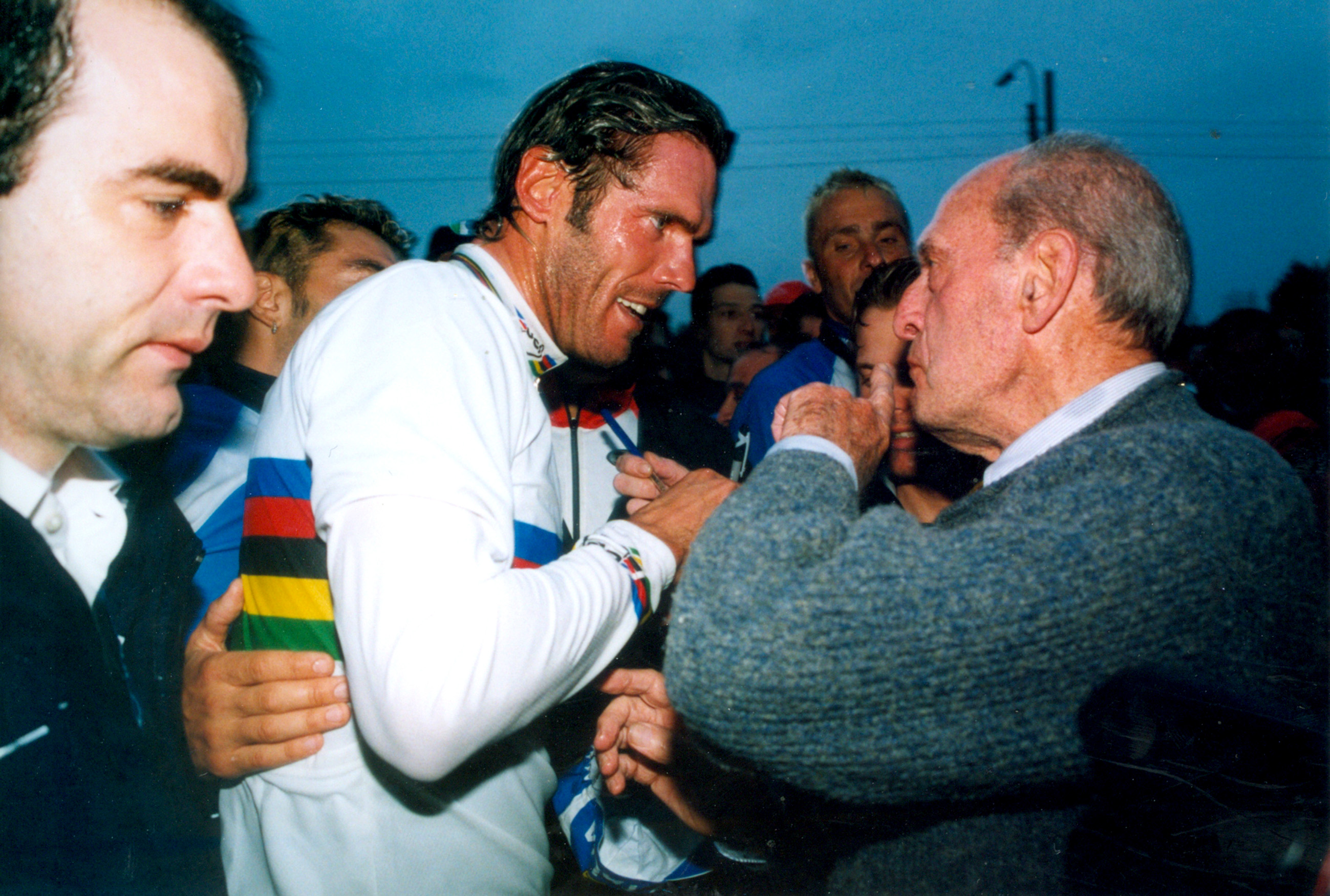
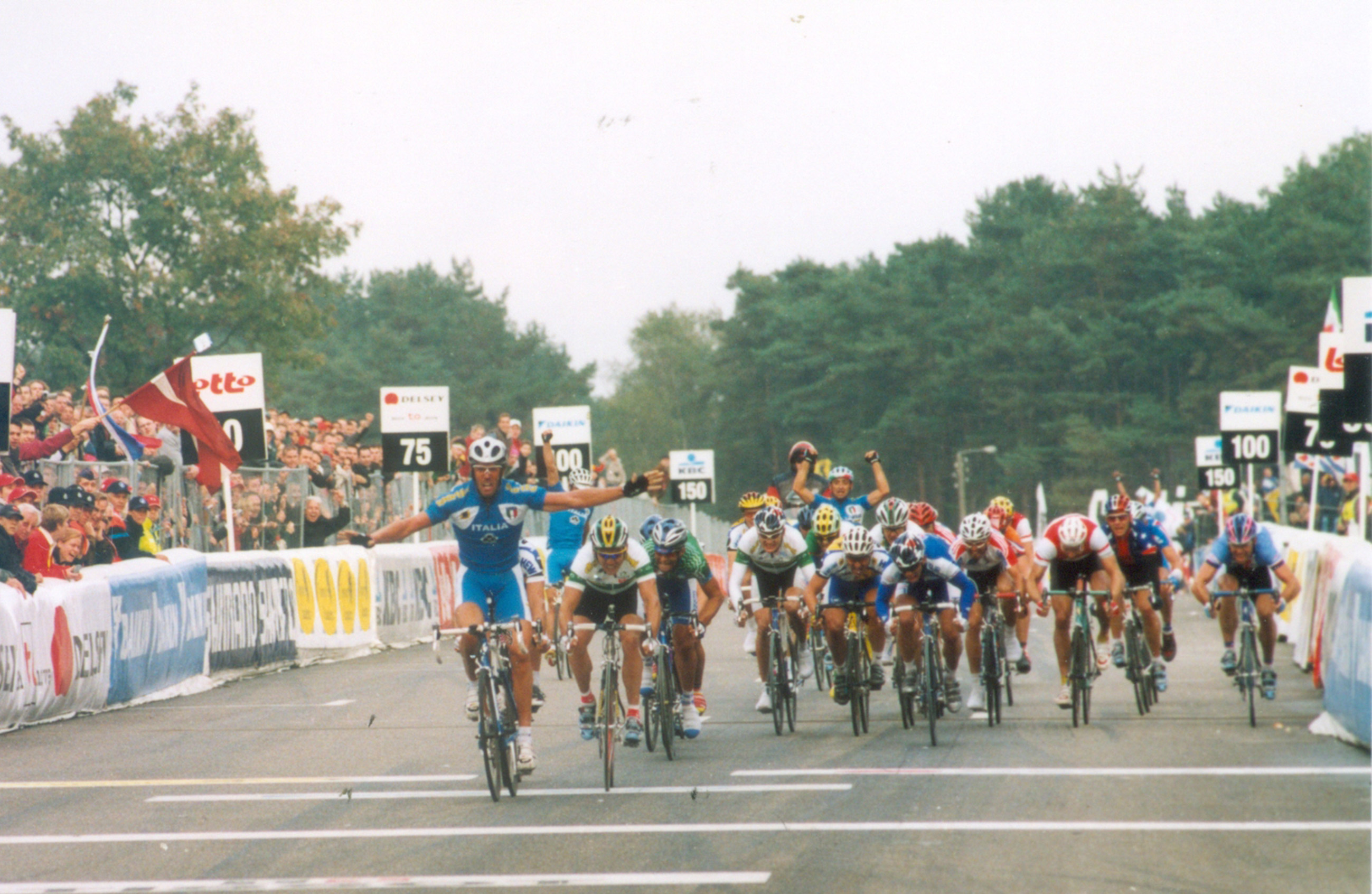
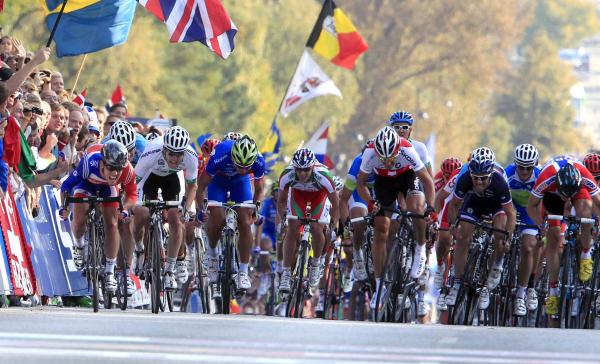
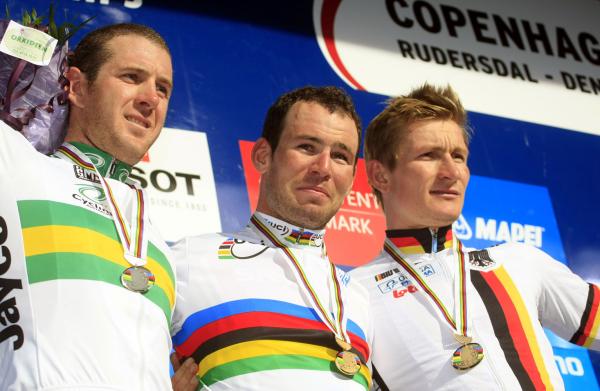
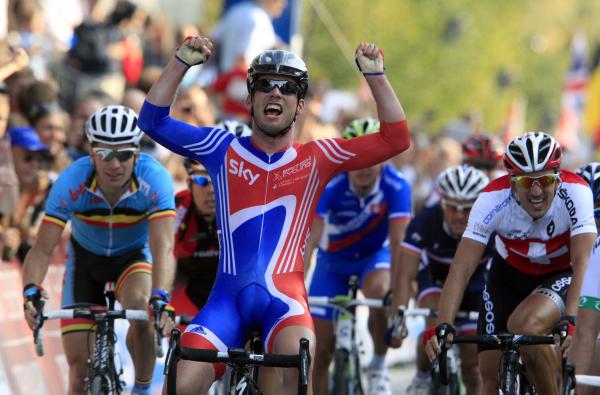
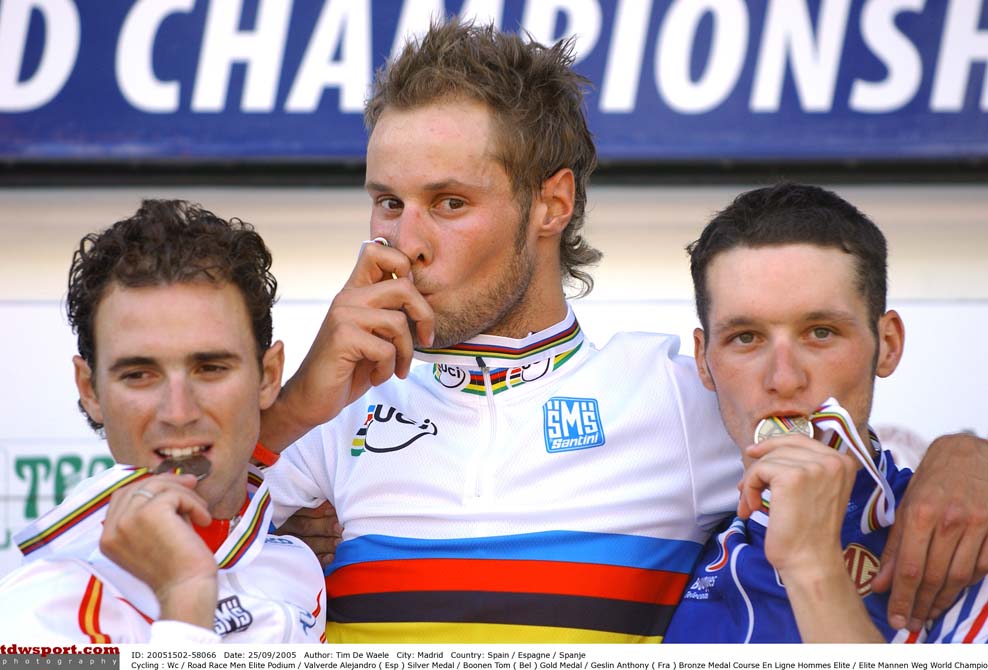
The 2016 UCI Road World Championships are just around the corner and, with the flat Qatar course likely to culminate in a bunch sprint, Cyclingnews’ casts an eye back through the archives on the most memorable sprint finishes in the recent history of the men's road race.
The course for this year’s race is based on a flat, fast and sinous 15km circuit on the Peal - an artificial island in Doha - to be covered seven times. The race, however, starts out in the desert, and if the winds blow, echelons could form and make the race a more uncontrollable and unpredictable affair. While a group sprint should come about, the size of the group and the nature of the sprint will be shaped in the desert.
Three of the past four editions of the men's Worlds road race have been won solo, with Rui Costa winning a two-up sprint in the other one, so we have to go back to 2011 for the last pure bunch sprint on the men’s side, when Mark Cavendish pulled on the rainbow bands in Copenhagen.
There have been plenty of memorable sprints over the last few decades - here's our pick of the bunch.
2011: Cavendish comes from nowhere
The 2011 Worlds felt like they belonged to Mark Cavendish long before he picked his way through a chaotic finale in Copenhagen and unleashed a sprint no one could match. Going into the race, there was little doubt that the Manxman sat head and shoulders at the top of the sprinting world, having just taken another five stages at that year’s Tour de France to take his tally to 21 in the space of five editions.
With such favourite status came great pressure, which must have only been enhanced going into the final kilometres by the awareness of the work his Great Britain teammates - a constant controlling presence at the head of the peloton - had done for him since the start of the day. Yet Cavendish had to do it all himself in the final kilometre. GB were on the front but the Manxman found himself several wheels back. Geraint Thomas dropped back to try and find him but was of little use by that stage, and Cavendish, so used to having the famous HTC leadout train in front of him, was going to have to do it the hard way.
Heading towards the final 300m the television shots show Cavendish at least five wheels back, but by the time it switches to a head-on shot from the finish line he’s suddenly, dramatically, out in front. Replays show how an opportunity emerged on the right hand side of the road and, combining patience, opportunism and raw speed, Cavendish grabbed it to become a worthy world champion.
Get The Leadout Newsletter
The latest race content, interviews, features, reviews and expert buying guides, direct to your inbox!
2005: Boonen caps glorious campaign
If Cavendish was a fitting world champion, what does that make Tom Boonen?
The Belgian took the title in 2005 to round off one of the most gloriously successful seasons in the history of the sport. Having pulled off the Tour of Flanders and Paris-Roubaix double in the spring, and followed it up with two stages at the Tour de France, Boonen was already on top of the world before he pulled on the rainbow jersey in Madrid.
This was a nail-biter of the sort the Worlds does so well, with a group of six taking the flamme rouge, only to be caught by a larger group with 500 metres to go. Boonen was in there. At his pre-Paris-Roubaix press conference this year, he joked that you need ‘big balls’ to win the Hell of the North, and in Madrid, at 24 years of age, he showed he possessed the quality in abundance.
With so little time between the catch and the need to sprint, Boonen was at his nerveless and impulsive best – a ball of urgent, aggressive energy. Having swapped the wheel of Alejandro Valverde for that of Marcus Lungqvist, he sees a gap to his left and swoops like a bird of prey before driving clear, head bobbing furiously all the way to the line.
2002: Cipollini roars home
Mario Cipollini knew he only had one chance of winning the world title and he and the Italian team did everything they could to ensure the race around the Zolder motor racing circuit finished in a sprint, including forming a pact with the German and Australian teams, who hoped Erik Zabel and Robbie McEwen would win the sprint.
Cipollini has since been implicated in Operacion Puerto by Gazzetta dello Sport but he has always denied any wrongdoing and has taken legal action against the paper.
2002 was the best season of his long career and began with him finally winning Milan-San Remo. His Acqua e Sapone team was not invited to the Tour de France and so Cipollini feigned retirement, only to announce his comeback and target the world championships. The Italian team was built around Cipollini with sprint rival Alessandro Petacchi given a key role in the lead out ahead of last man Giovanni Lombardi.
Two late crashes took out several of his rivals and reduced the front group to just 30 riders. Italy almost ran out of riders to lead out the sprint but Petacchi stepped up to do a double turn in the final kilometre. Lombardi produced a perfect lead out. Cipollini finished it off by powering down the middle of the road, with the Italian television commentator in this video screaming his name in celebration.
1999: Freire’s surprise package
Few people were in any doubt of the talent of Oscar Freire when he sprinted to a third world championships title in 2004, but it’s fair to say that on the same Verona roads five years previously he sprang one of the biggest surprises the World Championships have ever seen.
The Spaniard was an unproven 23-year-old at the time, coming into the Worlds on the back of an injury-ravaged season, with just 11 race days under his belt and without a contract for the following year. He was a late addition to Spain’s team for the 1999 Worlds – presumably just a rider to make up the numbers.
It was a surprise, then, to see him enter the final kilometre in a lead group that included Jan Ullrich, Frank Vandenbroucke, Francesco Casagrande, and reigning world champion Oscar Camenzind. What happened next was an even bigger shock. As the line of riders snaked from one side of the road to the other, Freire broke rank and went from 500 metres. It was perhaps the element of surprise that helped him to the line; the others looked like they didn’t quite believe it.
By the finish line, Freire had opened up such a gap that it’s almost a stretch to include him here, on a list of sprints. He had enough time to sit up, raise his arms, and clap his hands in delight – a star was born.
1972: Basso snatches victory from Bitossi
The 1972 World Championships in Gap threw up one of the most dramatic finishes in the history of the race, with Marino Basso passing fellow Italian Franco Bitossi in sight of the line to grab the rainbow jersey.
Bitossi had made a solo attack with 1.5km to go and as the others hesitated, he opened a gap that seemed enough to assure victory. However, he had to fight a headwind and was overcome with emotion at the idea of becoming world champion.
Basso was in the chase group behind and helped with the chase, knowing that he was the fastest in the group.
“Franco had a good gap but I knew we'd catch him and I knew I’d win with 500 metres to go,” Basso explained to Gazzetta dello Sport. “I knew I had to make one long sprint and was scared of blowing up but then Merckx jumped and he gave me a perfect lead out. I got Guimard off my wheel and when I finally passed Bitossi it seemed like he was stood still.”
Losing in such a dramatic fashion became a nightmare for Bitossi. He won 171 races during his career, including the Giro di Lombardia and the points jersey at the 1969 Tour de France. However his name will always be associated with losing the world title in Gap.
Patrick is a freelance sports writer and editor. He’s an NCTJ-accredited journalist with a bachelor’s degree in modern languages (French and Spanish). Patrick worked full-time at Cyclingnews for eight years between 2015 and 2023, latterly as Deputy Editor.
